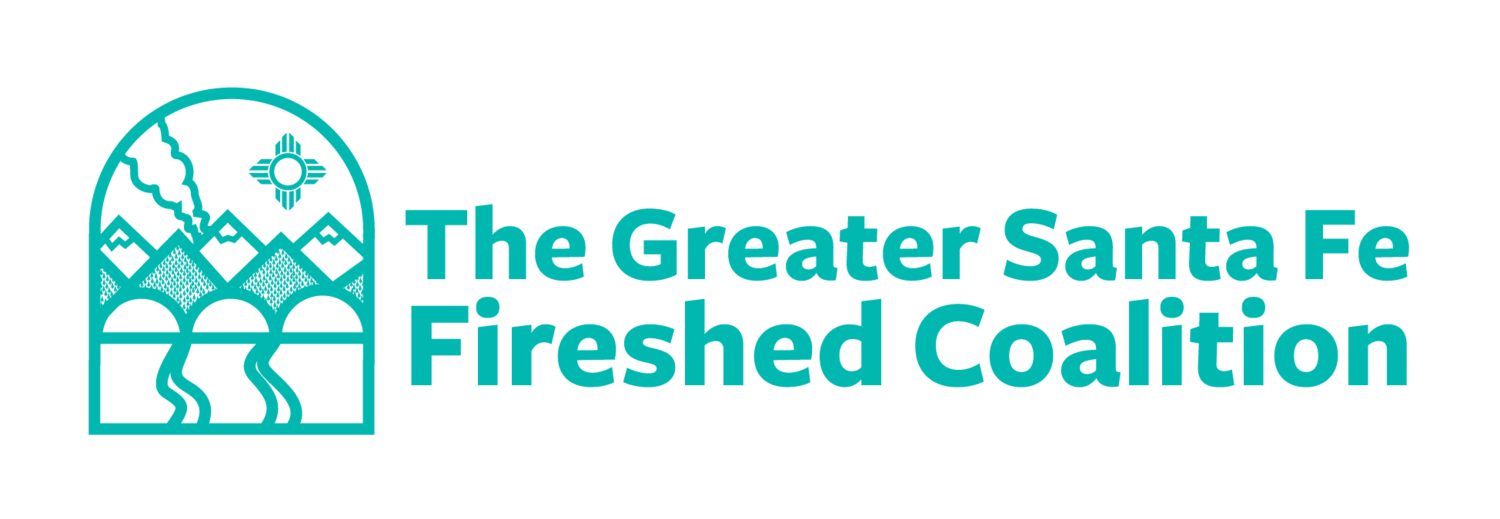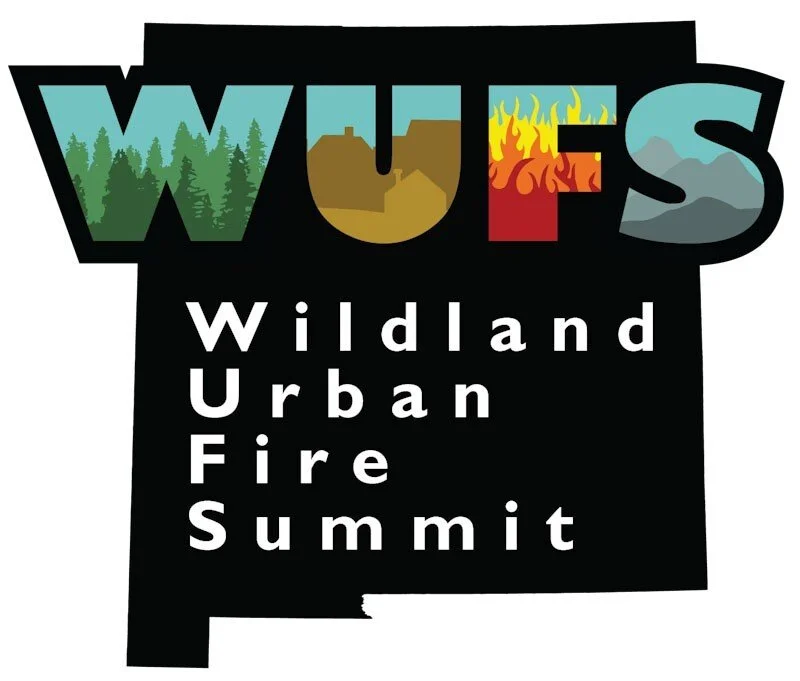Hello Fireshed community,
Happy Wednesday! We hope you’re having a good week and enjoying the nice weather we’ve been having. Many prescribed burns are occurring throughout Northern New Mexico at the moment, check out NM Fire Info to stay informed and read our previous blog post on prescribed fires to learn more on why these burns are important. If you’re experiencing smoke from the prescribed burns, visit our Smoke & HEPA Filter Loan Program page on the FACNM website to learn more. This week we’re reflecting and sharing resources from the recent New Mexico Wildland Urban Fire Summit: Community Resilience & Recovery (WUFS). There were a lot of great resources shared so keep reading to learn more!
This week’s Wildfire Wednesday features:
Talks of interest from WUFS 2021
The recent Wildfire Science and Values Peer Learning Session
Best,
Liz
New Mexico Wildland Urban Fire Summit: Community Resilience & Recovery
The NM Wildland Urban Fire Summit is an forum for wildfire preparedness and planning where a network of experts and peers share successes and lessons learned from “living with fire” in an effort to assist one another with fire resiliency goals and learn innovative ways to adapt communities to wildfires. At this year’s summit, presenters included those academic researchers, private business owners, hazard mitigation officers, fire instructors, forest service personnel and more. To see a full agenda from both days of the conference click here.
Talks of interest
Turning Up the Heat: Tools for Understanding, Exploring, and Reducing Wildfire Risks (Keynote), Presented by Kimiko Barrett, Ph.D.
Dr. Barrett, wildfire researcher and policy lead for Headwaters Economics, shared tools for long-term community resiliency that have been developed with federal, state, local and private partners. The tools discussed include the Wildfire Risk to Communities website and the Unequal Impacts of Wildfire Risk tool which uses data to show in which counties people could be disproportionately impacted from wildfires.
Beyond Grant-Writing Panic: Building the Collaborative Infrastructure to Bolster Long-Term Forest and Community Resilience from Wildfire in Taos County, Presented by J.R. Logan, Taos County WUI Coordinator.
This talk highlights the work being done in Taos County on improving the infrastructure to move money efficiently to high-priority forestry projects despite administrative hurdles and planning obstacles. Collaborative, community groups have been coordinating to “look at specific areas in a specific geography with specific partners and start picking away at treatments” and the county is working on aligning local priorities with those from federal agencies and building those into the CWPP.
Find the above talks and others here - Day 1, Part A (Dr. Kimiko Barrett @ 11:23 minutes; J.R. Logan @ 58:14 minutes)
Achieving Landscape Scale Piñon-Juniper Ecosystem Treatment Efficiency: Seeking a Smarter Use of WUI Dollars in PJ Stewardship. Presented by Jan-Willem Jansens, Ecotone Landscape Planning, LLC
Jan-Willem addresses several questions regarding the current state of piñion-juniper ecosystems, the challenges being faced, and how to effectively manage these ecosystems.
Find the above talk and more here - Day 1, Part B (Jan-Willem Jansens @ 3:37 minutes)
Firehorses: How Individuals, Communities, Fire Personnel, and Governments can Plan, Prepare, and Execute Equine Evacuations Safely. Presented by Madeleine Carey, Graduate HA, Watermelon Mountain Pony Club
Madeleine shares her lessons learned from helping with horse evacuations during the Las Conchas fire and her experiences with the Watermelon Mountain Pony Club. Her presentation contains many resources that may be of interest to individuals looking to prepare for equine evacuations in the case of wildfires. You can find her powerpoint presentation with links here.
Wildland Fire in the Middle School Classroom. Presented by Christine Mares, Wildland Fire Instructor, Southwest Fire Science Consortium & Mollie Parsons, Cerise Consulting.
This presentation shares information on the Fire Ecology Learning Lab Middle School Curriculum that is in development. The curriculum includes low/no-cost lessons for middle school classrooms with themes including biotic communities, wildland fire, and wildland fire management.
Hazard Mitigation Funding Opportunities in New Mexico. Presented by Chelsea Morganti, CFM, State Hazard Mitigation Officer, NMDHSEM
Chelsea introduces the different funding opportunities available in New Mexico for hazard mitigation. She explains what is a natural hazard in New Mexico, what qualifies as hazard mitigation, the pathways of grants, who is eligible to apply, match requirements, project types and more. This is a great resource for anyone interested in funding opportunities for various types of hazard mitigation, you can find her powerpoint presentation here.
Find the above talks and more here - Day 2 (Madeline Carey @ 2:03:52; Christine Mares & Mollie Parsons @ 2:14:32; Chelsea Morganti @ 3:00:41)
Wildfire Science and Values Peer Learning Session
Hosted by the National Forest Foundation in partnership with the Montana Forest Collaboration Network
During this peer learning session, speakers will:
Build understanding about the spectrum of complementary actions, based on available science, to protect the built environment and community values from wildfire, improve the ecological resilience of our landscapes, and improve the safety and effectiveness of wildfire management;
Discuss the concepts of landscape resilience, the wildland urban interface and the home ignition zone, fire management options, and the roles they play in reducing fire risk;
Address why fire needs to be restored to the landscape;
Consider the values that could be lost and how they relate to fire; and
Discuss how to increase the options for fire managers to implement integrated active management.
Moderated by Dr. Colin Hardy, U.S. Forest Service, Missoula Fire Sciences Lab. Speakers include:
Dr. Mark Finney, U.S. Forest Service Fire Lab;
Dr. Jack Cohen, U.S. Forest Service Fire Lab (ret.); and
Barbara (Bea) Day, U.S. Forest Service Portland NIMO Incident Commander.






